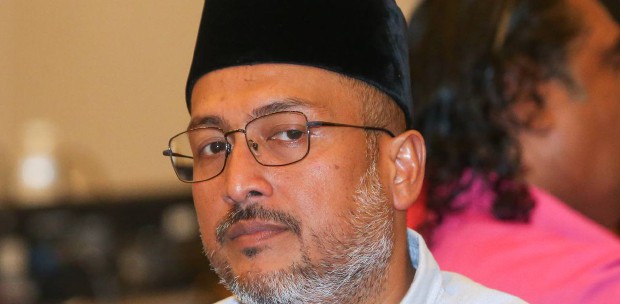Enlightenment-era French philosopher Denis Diderot used to say that “all things must be examined, debated, investigated without exception and without regard for anyone’s feelings”.
However, last month’s walkout by journalists from the Pahang Umno Convention showed the occasional uneasy and fractious relationship between political parties and the media in the pursuit of truth and readership.
In the incident on Nov 19, journalists from the New Straits Times, The Star, Berita Harian, Harian Metro, Sin Chew Jit Poh, and Bernama were among those who were booed and asked to leave by a vocal group within the nearly 2,000 delegates attending the Pahang
Umno Convention.
While various quarters gave public lip service to the importance of a healthy working relationship between political players and media representatives, history indicates that a smooth relationship is not always possible.
In 2012, Penang’s Chief Minister Lim Guan Eng had preached on freedom of speech, yet barred representatives from certain media groups, such as NST, from covering state functions and events officiated by him.
One must remember that despite the desire to maintain cordial relations with those in power and those who report for the people, the relationship could slide into an adversarial one.
This is seen from the many lawsuits by Lim against the media on various issues such as allegations of treachery involving Singapore’s ruling People’s Action Party (PAP) and on Penang’s world heritage status.
Even Pahang Menteri Besar Datuk Seri Adnan Yaakob was not spared from the occasional figurative head-butt with the media as he has a pending appeal at the Federal Court over his defamation suit against Utusan Malaysia over its article about him.
Certain quarters had also made the claim that politicians do not need the traditional media as they could just rely on online social media such as Facebook, Twitter and Instagram to reach out to supporters.
Perhaps they are emboldened by the recent improbable, but very much true, United States electoral victory by billionaire Donald Trump, the president-elect, who himself had frosty relations with the mainstream media in the course of his one-year campaign period.
Trump, relying on his experience as a reality show celebrity and use of the online social platform, had chosen to connect with millions of supporters through his uploading of multitudes of pictures and other postings on Twitter and Instagram, among others.
However, one must remember that unlike the US, where Internet penetration and use of social media among its citizens have long matured, it is arguable whether countries like Malaysia have a similar number of its electorate connected to each other via Facebook, Instagram and Twitter.
Taking a leaf from online portal Internet Live Stats analysis and breakdown of Internet user data gathered from the International Telecommunications Union among others, the estimated number of Internet users in Malaysia as of July was around 21 million, which comprised only around 68.6 per cent of Malaysia’s total population.
With a large number of the electorate spread across the rural parliamentary and state constituencies, the traditional media still has an important role in disseminating the message from various political players to readers.
These readers, in digesting the various news and analytical write-ups in newspapers, would be in a better position to make the decision whether to maintain or increase the current political status quo or overturn it and go with an opposition-led government.
With the possibility of the 14th General Election being called next year, it is imperative for the various political parties and media organisations to forge a respect-ful relationship which would benefit all in charting the country’s future.
The fallout from the Pahang Umno Convention has, for the most part, settled down, with media representatives recently seen at events officiated by the menteri besar.
After all, as English poet John Donne said, “no man is an island”.
Indeed, there is much to learn from one another, and all parties should make use of whatever resources there are to co-exist .
Hidir Reduan is Pahang staff correspondent. He seeks pleasure in contemplative pursuits like viewing thought-provoking documentaries and reading






